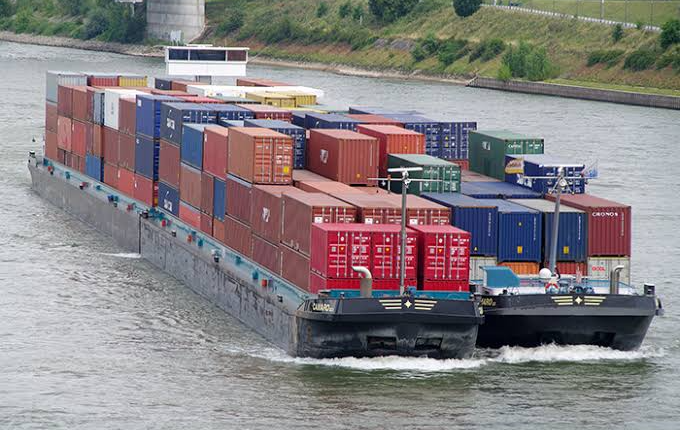BREAKING: As Haulage Cost Crashes At Lagos Port

aritime stakeholders have expressed excitement as haulage of cargoes by road crashes at Lagos seaport – Tin-Can Island and Apapa Port.
The crash, according to stakeholders, was a result of a drop in cargo imports into the country due to the high exchange rate against the naira.
Also, the movement of cargoes by barges and rail have contributed to the crash.
It was gathered that a trip from Apapa seaport to Sango, Otta, Ogun State, that was hitherto charged at N900,000 crashed to N350,000, thereby representing a 157 per cent crash in haulage cost.
Speaking, a trucker, Yusuf Liadi, said that the cost reduction was due to low imports and the viability of the standard gauge rail line.
According to him, the majority of importers now prefer to move their already cleared cargoes through rail due to the cost.
“Last week, haulage of a 40ft container from Lagos Port to Sango was N900,000, but today, it goes for N350,000. The crash in price was a result of low import and usage of rail to move cargoes out of the seaports to Oyingbo or Sango.
“Ikeja that hitherto goes for N750,000 now goes for N250,000 while the
“Also, the usage of badges by cargo owners has made prices drop drastically, but I hope the price comes up because the price doesn’t represent the current economic challenges.”
Liadi, however, disclosed that for the past few months, it had been easy to secure codes for access to the port.
He also disclosed that trucks are at their various yards waiting endlessly to get a Terminal Delivery Order (TDO) for the evacuation of cleared cargoes.
“We have trucks at the port waiting for TDOs to access the seaports to bring haul cargo out of the seaports to the owner’s warehouse,” he said.
Also confirming the price drop, the Chairman of the Lagos State Truck and Cargo Operators Committee (LASTCOC), Alhaji Lukman Shittu, said the price drop was due to the efficiency of the electronic call-up system operated by the Transit Park (TTP).
According to him, congestion on the port access road fuels an increase in haulage cost as well as when trucks are not released to the terminals.
“When there is a scarcity of trucks at the terminals, we have a few trucks chasing so many already cleared cargoes, so the price will go up, but anytime there is congestion, prices will automatically go up.
“Also, since it is easier to make bookings for e-call up and access the port seamlessly, haulage cost will automatically come down.”
